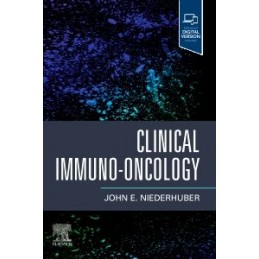- Reduced price

Order to parcel locker

easy pay


 Delivery policy
Delivery policy
Choose Paczkomat Inpost, Orlen Paczka, DHL, DPD or Poczta Polska. Click for more details
 Security policy
Security policy
Pay with a quick bank transfer, payment card or cash on delivery. Click for more details
 Return policy
Return policy
If you are a consumer, you can return the goods within 14 days. Click for more details
Data sheet
1. Development and Structure of the Lymphoid System
2. The Chemistry, Structure, and Function of Immunoglobulins
3. The Role of the Complement System in Cancer Etiology and Management
4. Cancer and the Science of Innate Immunity
5. Tumor Antigenicity and Cancer as Non-Self
6. Tumor Immune Surveillance
7. The Essential Elements of Adaptive Immunity and Their Relevance to Cancer Immunology
8. Cancer-Avoiding Immune Detection
9. Vaccines and Active Immunization Against Cancer
10. The Major Clinical Components of Cancer Immunotherapy (Modulating Cell-Mediated Immune Mechanisms)
11. The Microbiome and Cancer Immunotherapy
12. The Clinical Application of Immuno-Therapeutics
13. The Effect of COVID-19 on Cancer Immunotherapy and Cancer Care
Reference: 74761
Author: Louise Hamilton
Reference: 5004
Author: Rick Harnsberger
Reference: 5213
Author: Sjirk J. Westra
Reference: 1164
Author: Adam Rosławski
